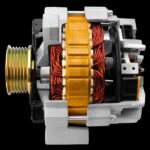Renting a car at Anchorage Airport offers convenient transportation, but understanding fuel policies is crucial. Most rental companies provide vehicles with a full tank, but exceptions exist. This guide clarifies the fuel options for car rentals at Anchorage Airport, ensuring a smooth and hassle-free experience.
Fuel Service Options: A Breakdown
There are generally three refueling options for car rentals at Anchorage Airport:
1. Pre-Purchase Fuel Option
Opting for the pre-paid fuel service means you purchase a full tank of gas upfront. The price is typically displayed on your rental agreement. This eliminates the need to refuel before returning the car. While convenient, you might not receive a refund for any unused fuel. Consider your estimated mileage and compare the pre-paid cost with local gas prices to determine if this is the best value.
2. Return with a Full Tank
This option allows you to avoid extra fuel charges. Fill the tank to the same level as when you picked up the car just before returning it. Keep your fuel receipt as proof of purchase. The rental company might request it to verify a full tank. This is often the most cost-effective choice if you plan to drive extensively.
3. Refuel Service Charge
If you decline the pre-paid fuel option and return the car with less fuel than initially provided, the rental company will charge a refuel service fee. This fee is calculated based on the number of gallons needed to refill the tank or a per-mile rate, as specified in your rental agreement. The per-gallon rate is often higher than local gas station prices.
Mileage-Based Calculation: If you don’t purchase fuel during the rental, the fee is determined by multiplying the miles driven by the per-mile rate.
Fuel Purchase with Partial Refill: If you buy fuel but don’t completely refill the tank, the charge is calculated based on the difference between the initial and return fuel levels, multiplied by the per-gallon rate.
Important Considerations
-
Fuel Type: Always use the correct fuel type specified on the car’s fuel cap or inside the fuel door. Using the wrong fuel can damage the engine and lead to significant extra charges.
-
Ethanol Fuel: Avoid using ethanol fuel, even if the vehicle is designated as flex-fuel. Rental car companies often prohibit ethanol use.
-
Telematics: Some rental cars utilize telematics to monitor fuel levels. This system accurately measures fuel consumption and ensures precise billing for refueling.
-
Rental Agreement: Carefully review the fuel policy outlined in your rental agreement before driving. This document details all applicable fees and procedures.
Conclusion
Understanding the fuel options for your car rental at Anchorage Airport can save you money and prevent unexpected charges. By choosing the most suitable refueling method and adhering to the rental company’s guidelines, you can ensure a smooth and enjoyable travel experience. Choose the option that aligns with your travel plans and budget.

